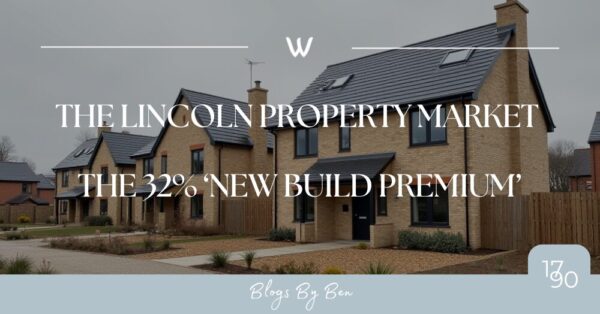Roll the clock back to 1979, a year marked by a seismic shift in the UK government with Margaret Thatcher coming to power. This was a momentous time for the country, symbolising a new direction. Fast forward to 2024, and we could be about to experience another significant change with Sir Keir Starmer leading the Labour Party to victory.
Such pivotal moments often set the stage for substantial changes in various sectors, including the property market. This article explores the evolution of Lincoln’s property market from 1979 to the present day, highlighting the long-term benefits of homeownership and the dynamics of the buy-to-let market.
Lincoln Property Values Since 1979
Reflecting on the changes since 1979, property values in Lincoln have soared by an astounding 1382.4%.
The average Lincoln home has risen in value from £13,873 in 1979 to £205,663 today. To contextualise this, inflation over the same period has only been 374.7%.
This dramatic increase underscores why property ownership has become increasingly challenging for many, making it an attractive proposition for landlords.
Shifts in Property Ownership in Lincoln
Examining local authority data for Lincoln in 1979, 38.4% of residents lived in council or social houses. Today, that figure is 21.1%.
This significant decline can be primarily attributed to Margaret Thatcher’s policy that allowed council tenants to purchase their homes. Meanwhile, the private rental sector has more than doubled, with the proportion of privately rented properties rising from 10.4% to 27.5%.
Contrary to what one might expect, the homeownership rate in Lincoln has grown slightly over the years. In 1979, 51.2% of the Lincoln area population owned their homes. Today, this figure stands at 51.4%.
The Evolution of the Lincoln Buy-to-Let Market
The backdrop of reduced council house availability and a growing private rental sector sets the stage for the buy-to-let market in Lincoln. Historically, this market has relied heavily on property value appreciation, often at the expense of yield. However, recent changes in tax laws and landlord-tenant regulations are reshaping this landscape.
While challenging for some, these regulatory changes present opportunities for astute investors. Landlords might need to reassess their strategies, adjust their financing methods, or explore investment opportunities beyond Lincoln. This shift will likely highlight investments with healthier yields, fostering long-term stability over short-term speculation.
Long-Term Investment vs. Short-Term Gains
As we consider the value of buying a home versus the allure of short-term investments, it’s essential to understand the broader implications for Lincoln homeowners and landlords. The substantial increase in property values since 1979 illustrates the long-term benefits of homeownership. Despite market fluctuations, owning a home has historically provided significant financial returns.
Short-term investments, while potentially lucrative, carry higher risks and can be influenced by transient market trends. The recent changes in the property market and evolving regulations further complicate short-term investment strategies. For Lincoln homeowners, the focus should be on long-term value appreciation, stability, and sustainable returns.
Opportunities for Lincoln Landlords
The current market presents unique opportunities for Lincoln landlords. The regulatory changes might cause some landlords to panic, leading to reduced competition for lucrative buy-to-let properties. This scenario offers a more stable environment for knowledgeable and experienced landlords to thrive. The emphasis will shift towards properties with strong yield potentials rather than speculative short-term gains.
In this evolving market, it’s crucial for Lincoln landlords to stay informed and adapt their strategies accordingly. This might involve exploring different property types, adjusting rental models, or diversifying investments to include areas with better yield prospects. The key is to maintain a long-term perspective, focusing on sustainable growth and stable returns.
Final Thoughts
Reflecting on the dramatic rise in Lincoln property values since 1979, it’s clear that long-term property investment can yield substantial returns. While the market has undergone significant changes, the fundamentals of property investment remain robust. For Lincoln homeowners and landlords, the challenge is to navigate the evolving landscape with a focus on long-term value and stability.
Opportunities are abundant for those who are prepared to adapt and embrace change. As we look ahead, the emphasis on yield and sustainable investment strategies will become increasingly important.
For those interested in learning more about the Lincoln property market, I invite you to visit my office for a chat or explore the insights available on my Lincoln property market blog articles. You’ll find a wealth of information dedicated to navigating the complexities of the property market in Lincoln.


